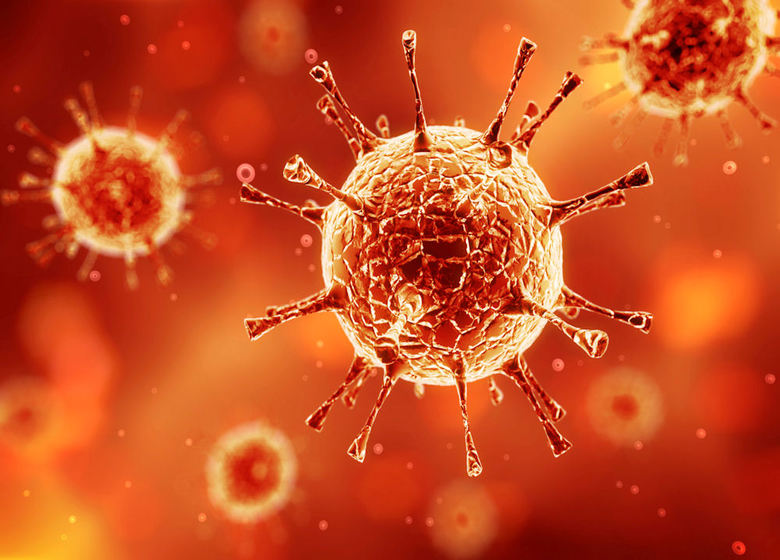The recent outbreak of an unknown type of coronavirus (Novel Coronavirus/2019-nCoV) has caused concern in the world, which has no cure yet and has caused a good deal of fear all over it, especially in the Wuhan area where the virus was first detected. Due to its proximity to China, fear has also managed to penetrate India. One of the main reasons for people’s fear is that the symptoms of this coronavirus are quite close to those of common flu, which makes it difficult to identify or differentiate between the two. Scroll down to know the symptoms and prevention of Coronavirus.
What Is Coronavirus?
The coronavirus originates from the group of pathogens which also affects mammals, birds, and humans. Most of this group’s viruses are not dangerous. These are a cause of illness in humans, including common flu, severe acute respiratory syndrome (SARS) and the Middle East Respiratory Syndrome (MERS).
To medical science, the coronavirus is not entirely unknown. In reality, it’s more common than anyone can imagine. The forms of coronaviruses that affect humans include NL63, 229E, HKU1, and OC43, which usually cause diseases of the upper respiratory tract (mild to moderate) and are to some degree infectious, just like a common cold. Those with poor immunity are more likely to get affected. Hence, the coronavirus is likely to affect older folk, pregnant women, babies, people suffering from heart disease, cancer, etc.
Most coronaviruses have similar symptoms of any other upper respiratory infection like:
- Runny nose
- Coughing
- Sore throat
- Fever
In most cases, you won’t know if you’ve got a coronavirus, or another cold-causing virus, like rhinovirus. You could get laboratory tests, including cultures of the nose and throat, and blood work, to find out if a coronavirus triggered the cold, but there is no explanation for it. The results of the test wouldn’t affect how you handle your symptoms, which usually go away within a few days.
But if an infection with coronavirus spreads to the lower respiratory tract (your windpipe and your lungs), it can cause pneumonia, particularly in the elderly, people with heart disease or people with weakened immune systems.
Prevention Of Coronavirus
Coronavirus vaccine is no longer available. Do the same things you do to avoid common cold to help the prevention of coronavirus.
- Thoroughly wash your hands with soap and warm water or with a hand sanitizer based on alcohol.
- Keep your eyes, nose, and mouth out of your hands and fingers.
- Avoid close contact with infected individuals.
The same way you treat a cough, you treat a coronavirus infection:
- Get enough rest.
- Drink the water.
- For sore throat and fever, use over-the-counter medicine. However, don’t use ibuprofen or acetaminophen for children or teenagers under the age of 19.
A steamy shower can also help relieve a sore and scratchy throat.
- Some international airports, railway stations, and bus stations perform health screenings to avoid the removal and importation of coronavirus-affected travelers. So, if you already have a fever, cough, and cold, cancel the travel plans.
- Those who have come into close contact with coronavirus-affected patients must be checked out immediately.
- If you experience trouble breathing along with cold, fever and cough, seek medical attention immediately.
- Ensure the restaurants follow general guidelines on food safety, food handling, and hygiene when eating out.
- If you’re traveling overseas, especially to a country with a significant number of reported coronavirus-related illnesses, make sure you boost your immunity and carry all the essential fever, cough and cold medications.
Coronavirus is known to be active during the winter seasons and spring seasons, so travel carefully. You also need to try to avoid crowded places to stop the virus from contracting. If you need more detail about coronaviruses or worry that you may have contracted disease, you should immediately contact a medical practitioner.
Also Read: Zika Virus In Children













